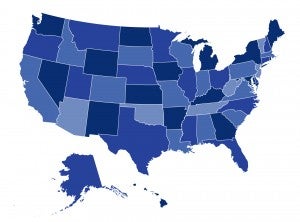
On August 9, 2012, the Robert Wood Johnson Foundation released three new state reports prepared by the Urban Institute and CHIR as part of the Affordable Care Act (ACA) Implementation—Monitoring and Tracking series. The reports on Minnesota, New Mexico, and Virginia are part of an ongoing series of in-depth case studies based on site visits and reports from national data sets in 10 key states. These 10 states are Alabama, Colorado, Maryland, Michigan, Minnesota, New Mexico, New York, Oregon, Rhode Island, and Virginia.
After conducting interviews with prominent state policymakers and health care stakeholders in the three states, and analyzing national insurance trends over the last decade, the authors found that:
- Minnesota’s ACA implementation has been greatly helped by close collaboration between officials from multiple state agencies and stakeholders to overcome what, in other states, have been contentious technical issues about how to structure reform.
- New Mexico’s long-standing history of health reform implementation, together with the proposed overhaul of its Medicaid program and acceptance of some of the available funding under the ACA, have helped position the state in its continued efforts to implement national health reform.
- In Virginia, the newly developed Virginia Health Reform Initiative creates a highly regarded process for debate on the different aspects of the ACA, and should help implementation down the road. According to trends from the past decade, there were notable declines in employer sponsored insurance and increases in uninsurance rates nationwide, though coverage was hardest hit in the South and Midwest.
Reports for the other states are available here.

